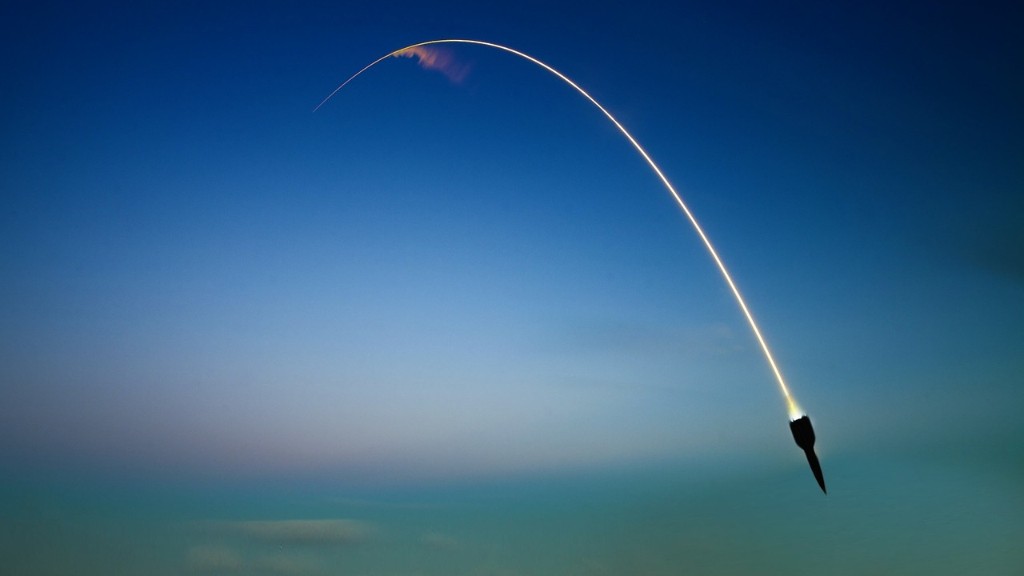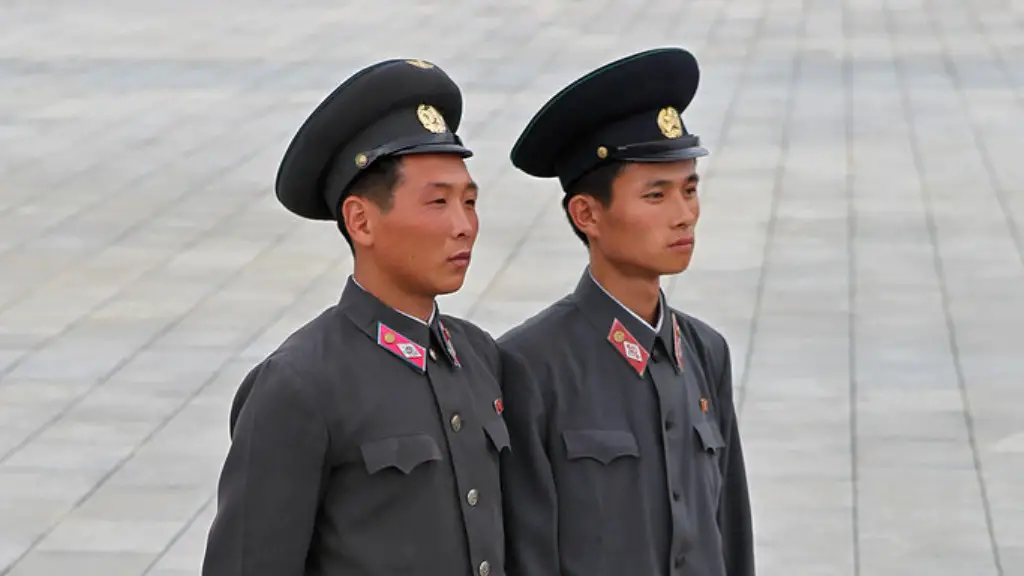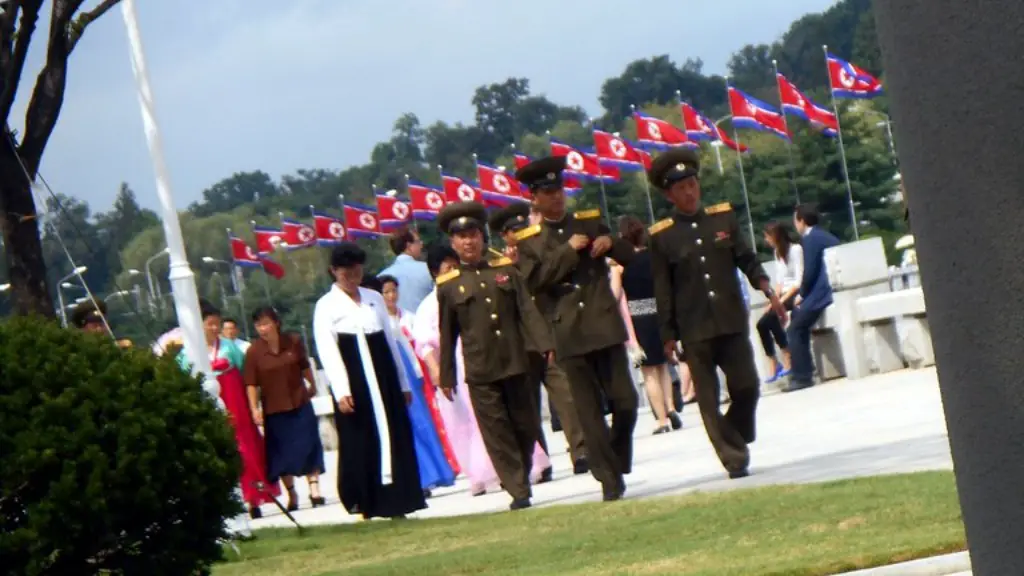When it comes to North Korea, talk of its belligerence has long been a topic of discussion. Recent developments show that North Korea is not likely to be content with battling over nuclear armament, but may have other means to wage war against its neighbours. For this reason, it is important to ask: when could North Korea attack?
The current consensus is that North Korea is unlikely to launch a full-scale military attack as its defence capabilities are still limited. However, the US Department of Defense has indicated that North Korea is developing weapons capable of launching nuclear strikes against South Korea and Japan. This would involve the use of ballistic missiles, submarines, long-range bombers and nuclear-armed drones. Therefore, if North Korea were to launch a full-scale attack, it would likely involve a combination of conventional and nuclear weapons.
Experts believe that North Korea views its nuclear arsenal as a bargaining chip to leverage other countries into supporting its interests, rather than a weapon of attack. This is because if North Korea were to launch a preemptive strike on its neighbours, it would face an overwhelming military response from the United States and its allies. There is also concern that any such attack could trigger a nuclear war in the region, which would have devastating consequences for all involved.
At the same time, North Korea has a history of engaging in hostile acts such as cyber attacks and aggression towards South Korean vessels. This suggests that North Korea is willing to use force to achieve its objectives. Thus, even if North Korea does not launch a full-scale attack, it is still likely to use more limited forms of aggression to try to intimidate its neighbours.
Another factor that is often overlooked when discussing North Korean aggression is the role of the country’s economy. North Korea’s Gross Domestic Product remains low and it relies heavily on assistance from China and other states. This means that if North Korea were to engage in an attack, it may risk damaging its economy and alienating potential allies who could offer much-needed support.
Ultimately, it is difficult to predict when North Korea might launch an attack, as the decision is ultimately in the hands of the country’s leader Kim Jong Un. However, it is clear that North Korea is not likely to launch a full-scale attack, as this would risk a massive retaliation that could cause more harm than good for the country. Nevertheless, the possibility of North Korea engaging in more limited forms of aggression, such as cyber attacks, remains high and should not be discounted.
Potential Impact of North Korean Aggression
If North Korea were to attack its neighbours, the consequences would be severe. In addition to the devastating human losses, the economic impact would be catastrophic. South Korea and Japan would be hit the hardest, due to the fact that these countries are heavily reliant on trade with North Korea. This means that a disruption in trading relations would likely lead to a significant downturn in the economies of these countries.
Moreover, the US and other allied countries would also suffer, as they would be drawn into a potential conflict due to their military commitments to South Korea. This could lead to an increase in military spending, as well as a disruption in trade and investment across the region.
Finally, it is important to note that a North Korean attack could set off a chain of events that could lead to a global conflict. North Korea has close ties with China and Russia, both of whom have asserted their influence in the region in recent years. Therefore, an attack could be used as an excuse by these countries to intervene and possibly oppose the US, leading to a wider conflict.
The Possibility of Denuclearization
Despite its aggressive rhetoric, North Korea’s leader Kim Jong Un has recently initiated talks aimed at denuclearization. This shows that North Korea is open to the idea of reducing tensions in the region and entering into negotiations with its neighbours. This could potentially lead to a reduction in the threat posed by North Korea’s nuclear arsenal and reduce the likelihood of an attack.
However, it is important to note that the process of denuclearization is likely to be long and complex. North Korea has long maintained that its nuclear arsenal is central to its national security and it is unlikely to give this up without significant concessions. This means that any negotiations are likely to be protracted, as both sides attempt to gain the upper hand.
In addition, other regional players such as China and Russia also have an interest in seeing North Korea’s nuclear arsenal dismantled. This means that any negotiations are likely to be complicated by competing interests and conflicting agendas.
The Role of the United States
The United States has long been at the forefront of attempts to reach a diplomatic solution for the North Korean crisis. In recent years, the US has attempted to engage in direct talks with North Korea, as well as using its close relationship with South Korea to try and foster a diplomatic resolution. However, the United States’ approach has often been criticized as being overly bellicose and inflexible.
At the same time, it is important to note that the United States is the key player in the region and its actions will have a major impact on the situation. This means that the United States must be careful in its approach and ensure that it does not embolden North Korea or make the situation worse.
Furthermore, President Trump has previously spoken about the possibility of using military force against North Korea if necessary. This shows that the United States is willing to take a hard line when it comes to dealing with North Korea and its nuclear arsenal. However, it is important to note that military action should always be seen as a last resort, as the consequences of such an act could be devastating.
Conclusion
At present, it is not possible to predict when North Korea might launch an attack, as the decision is ultimately in the hands of its leader Kim Jong Un. However, it is abundantly clear that the potential consequences of such an act would be catastrophic, both in terms of human losses and the disruption to the regional economy. For this reason, it is important that all involved parties work towards peacefully resolving the crisis and ensuring that North Korea’s nuclear arsenal is kept in check.
International Relationships
The relationship between North Korea and the outside world is often fraught with tension. Unfortunately, many countries view North Korea as a pariah state, which has led to a breakdown in relations and a lack of communication. This has made it difficult for the international community to find a diplomatic solution for the North Korean crisis.
At the same time, it is important to note that some countries have managed to maintain a working relationship with North Korea in spite of the difficulties. China, for example, has a close relationship with North Korea and is often seen as one of the only channels of communication between the two countries. This shows that diplomacy is still possible, even in the face of considerable differences.
Furthermore, the US and South Korea have also made attempts to reach out to North Korea in recent years. These attempts have had limited success, but have shown that North Korea is open to the idea of dialogue, provided that its interests are taken into account.
Ultimately, it is clear that the international community must continue to strive for a diplomatic solution to the North Korean crisis. This requires all parties to take an inclusive approach and to be willing to compromise, in order to find an agreeable solution that works for both sides.
Future Possibilities
Despite the current tensions, it is important to remember that the North Korean crisis is far from resolved and anything could happen in the future. North Korea has recently taken some steps towards improving its relationship with the outside world, such as suspending its nuclear and missile tests and pledging to denuclearize. This suggests that North Korea is open to the idea of a peaceful resolution and that a diplomatic solution might still be possible.
At the same time, it is important to note that the future of North Korea is far from certain. The country is still led by an authoritarian leader and its policies towards its neighbours remain hostile. This means that North Korea could still decide to pursue aggressive actions and launch a preemptive attack at any time.
Finally, it is important to remember that the rest of the world must remain vigilant and continue to monitor North Korea’s actions. Any signs of hostile intent should be addressed swiftly and decisively, in order to ensure that the situation does not escalate and that a peaceful resolution is still feasible.





